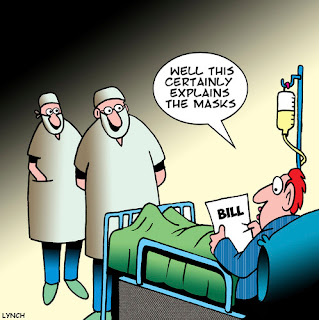When you have an accident that derails your living standard, makes everyday life painful, you can start to feel under the blues. Your finances will also take a hit, so even after you’ve healed, your bank account will still be recovering. We’ve all felt this annoying sense of burden, which when you’re physically injured, there are long-lasting effects that won’t go away. Your medical bills will skyrocket, and your insurance premiums may increase also. Although it’s perfectly reasonable for hospitals to charge your insurance if you have it, this burden will be placed on you by the insurance if you cannot prove it wasn’t your fault. It can become very complex and prepare to pay the medical bills is one thing, but paying for them when you don’t have the money and it's not your fault is infuriating. There are a few things you can do to react to a financial situation after an accident.
Have evidence for your insurer
Insurance companies may or may not pay for your medical bills depending on your plan. Cheaper plans require you not to be the cause of your own accident that physically harms you. Therefore this means you need to show evidence to your insurer that the reason you’ve ended up needing them to pay for your medical bills is not of your own making. Whether you’re in a car crash, or you simply slipped and fell on a wet floor in a store, you have to take evidence from the scene. This might be something as simple as taking pictures of the crash, or the fact that there was no warning sign at the area of the wet floor. Talk to witnesses and see if you can get their contact details, as the insurance company may want to phone them up to corroborate your story.
Recovering from the bills
Recovering from a large hit to your bank account from medical bills is going to be tough. If you have ended up in debt, your first reaction might be to get out loans to help you through this rocky period; you could opt for debt consolidation if you feel that you need extra help. This type of loan will make all your debts form into one giant charge, and the interest rate will then be centralized. The payments will be smaller, which will help you manage the monthly finances but the loan will make the payments back to zero a little longer. Medical bills can also have an impact on your credit rating, which can lead to loan companies denying you and banks charging you a higher interest rate for loans. On repair.credit, you can study how to recover from financial losses due to medical bills and make sure your reputation is salvaged. By sending a letter to the credit bureaus, you can also report an error in the medical bills that will, in turn, fix any unwarranted credit score dive.
Recovering from an accident is mentally challenging. Even more so when your finances are in trouble. If the accident was not your fault, you should not be liable to pay for medical bills. Collect as much evidence of this as you can, and work to keep your credit score healthy by not succumbing to the medical bills.

No comments:
Post a Comment